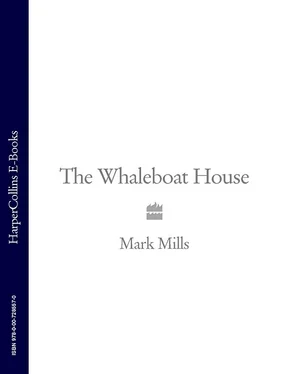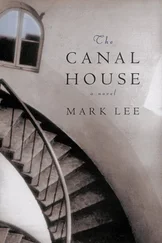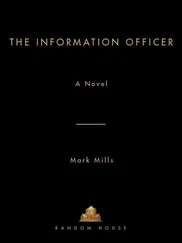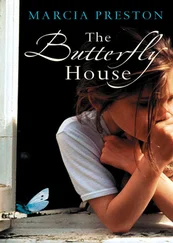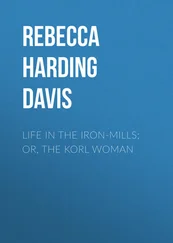Conrad was an eleven-year-old boy when he first stumbled across the bones, and to his wildly imaginative mind the find was proof that the great Flood as described in the Book of Genesis had indeed occurred. The whale must surely have found itself stranded high and dry when the waters that God sent to punish the wicked finally receded. As far as Conrad was concerned, discovering those bones was the next best thing to finding the Ark itself atop Mount Ararat.
The possessiveness of the young led him to guard his secret closely. He persuaded himself there was no need to share the discovery, not even with his closest friend – Billy Ockham – who would have been with him that day had he not been forced to trim hickory spiles for his father’s pound traps. Instead, Conrad carefully covered the exposed bones with sand, returning home with just the one vertebra, informing his father and stepmother that he’d found it on the ocean beach.
He had rejected the idea of hiding the precious object, partly because he needed his father’s expert confirmation that it had indeed come from a whale, but mainly because his older brother, Antton, would most likely have discovered the bone then destroyed it – ceremoniously, before his tear-filled eyes – for no other reason than that concealment was proof of Conrad’s affection for it.
For years the vertebra lay casually discarded in a corner of the attic bedroom the brothers shared, Conrad feigning indifference to it. However, when he was alone he’d pick it up, turning it in his hands, tracing its soft, porous contours with his fingertips.
Even when his faith abandoned him some years later, the bone lost none of its iconic power. Twenty years on, he still kept it in his bedroom. It was the last thing he registered before fitful sleep descended upon him, and the first thing his eyes searched out when he woke each morning. It had become the touchstone by which he tested his life. Somehow, it seemed to enshrine everything that had happened to him since he first prized it from the packed sand.
When he looked at it he saw himself romping with Billy on Napeague, grubbing for cherrystone clams that they cooked up on a steel plate over a fire-pit on the beach, digging holes and hauling up fresh water in a nail keg to see themselves through the long hot days of summer, or sneaking out at night to watch the Coast Guard cutters chasing the rum runners all over Gardiner’s Bay, tracer bullets and the muzzle flashes from the big three-inch guns lighting up the night sky, better than the Fourth of July. Other times, he saw Billy torn apart by machine-gun fire, clods of flesh flying, on some nameless rock in the Pacific, thousands of miles from home, fighting for a people who had sought, with considerable success, to annihilate him and his kind.
Good times and bad times, the lump of whale bone had absorbed them all like a thirsty sponge. Given the events of recent years, he now wondered if the bone hadn’t begun to favor the bad over the good, somehow attracting ill-luck to itself, and he questioned whether he was to blame for this. Maybe it was a cursed object, blighted from the moment he first removed it from its natural resting place.
He didn’t dismiss such ideas. Like most fishermen he was given to superstitions – no talk of pigs or knives around the boat, no women or preachers aboard, no whistling in a breeze. He even knew a Swedish lobsterman in Sag Harbor who refused to put to sea in the company of a Finn, but that had as much to do with ancient rivalries between the two nations as it did arcane beliefs. Men for whom death was a daily and very real possibility were inclined to respect the precautionary wisdoms, however curious, of those who’d gone before them. It was the reason Conrad still cherished the caul that had masked his blunt, newborn face.
The patch of diaphanous skin, moist and clear when he was first dragged into the world, now lay dry and crinkled like a piece of old parchment in the shallow wooden pine box made specially by his father to house it. Prized as a potent charm against drowning, deep-sea whalemen used to pay big money for a baby’s caul to carry with them on their perilous voyages, though most found themselves rounding the Horn with little more than a scrap of cow’s after-birth in their pockets, sold them by some unscrupulous type wise to the lucrative trade.
That Conrad should have been born with a caul was as good a portent as any fisherman could wish for his son. It meant that the child was somehow touched, that the gods looked favorably upon him, that this was one boy who would never get to share the company of Davy Jones. Whether there was any truth in this, who could say? All Conrad knew was that he was still alive while others had been taken by the sea.
A sharp pain in his hand brought Conrad to his senses. He flicked the cigarette butt away and turned towards the oyster house, aware again of the noisy debate taking place inside.
It was some years since the beds off the north shore had yielded oysters of sufficient number or size worthy of the New York market, and little remained in the cavernous hall to indicate the building’s original function. The long benches for cleaning and packing the oysters had been stripped out – bought by old Mabbett for a song when he had expanded his fish-packing business – and the community of Amagansett men who followed the sea now referred to the rickety building as Oyster Hall. It was where they collected to while away the slow, fragmented winter months in idle chat. When the weather was too severe for even the most reckless among them to put to sea, the place would be packed with bodies. Right now there were fifty or so men gathered inside, but not one of them turned as Conrad entered.
Some were on their feet, gesticulating wildly, disturbing the pall of pipe and cigarette smoke hanging below the rafters. Others hurled insults at each other. The meeting had degenerated into a free-for-all.
‘Shut it off!’ bellowed Rollo’s father, Ned Kemp. He was seated behind a table on the far side of the hall, flanked by Jake Van Duyn and Frank Paine. Beside them, on a worn square of zinc nailed to the floor, stood the big airtight stove, its long and rickety pipe snaking above their heads, suspended by wires from the ceiling. Grabbing a poker, Ned beat on the pipe.
‘Shut it off, goddamnit!’ The deafening sound restored some kind of order to the assembly.
Ned advanced through the rows of men ranged on chairs before him, brandishing the poker. ‘You, Osborne, bring your ass to anchor.’ Art Osborne duly did as he was told.
‘God in heaven,’ snapped Ned. ‘What do you think the sports’d say if they saw us now? I tell you what they’d say, they’d say they got the battle won, and they’d be right, you sorry sonsabitches.’
Conrad caught sight of Rollo standing with his brothers against the wall in the corner, looking completely puzzled. His father wasn’t naturally given to profanities.
‘We got to get us organized,’ Ned went on. ‘Else we don’t stand a snowball’s chance in hell of beating the bill, that’s sure enough.’
The bill in question was a proposed amendment to the state fisheries law sponsored by the growing lobby of sportsfishermen. Like the bill narrowly defeated before the war, it called for a total ban on all fishing by means of nets, traps and trawl lines within the tidal waters of New York State, ascribing natural fluctuations in all fish populations to wholesale pillaging by the commercial fishermen. When it came to it, though, everyone knew the real reason the rod-and-line men were calling for action. They wanted to board the train at Penn Station in New York at 3 a.m. on a Saturday morning in the knowledge that no one else had tampered with their precious waters off Montauk since the previous weekend.
Читать дальше
